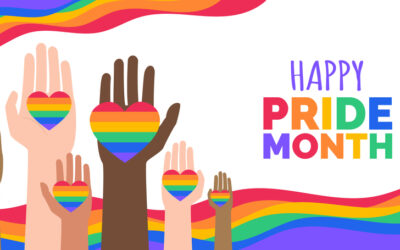by Veronica Vaiti, LCSW-R
Ahhh the weather…a universal phenomenon that connects us all. Whether we are accepting of and enjoying it or are feeling fed up and loathsome with our current weather, most everyone everywhere registers some reaction to the type of weather system they are entrenched in.
For instance, here in the NY Metro area, we have been under a deep freeze. I saw one list of statistics that noted this February as the 4th coldest month of record. Translation: whatever age you are, you have probably never experienced such a consistently very cold string of days ever before.
Many people I’ve encountered have noted in a disgruntled and beleaguered tone, “having had enough of the cold”. Yet every so often I meet someone who finds the cold invigorating and just loves it. How has this weather effected you?
On a more profound level, looking at our reactions to the weather can offer some insight into how we tend to relate to life in general and whatever life throws in our direction. How is that you may ask? Well for one, the weather is something completely utterly out of our control and something we can’t avoid, even if you never leave your house. This represents one of the biggest quandaries of life – how to manage with what is out of our control – which really comprises many aspects of life.
Secondly, how we relate to the weather not only sheds like on our preferences, but on how we react when things “don’t go our way” – another consistently unavoidable and challenging issue to cope with in life. Sure, we can easily say when we have had enough of the cold that we yearn for a bright warm beach with a soft breeze. But when faced with the fact that we probably have many more weeks or months really before we can head to the beach, what happens to your mood and your attitude? Do you become sad, depressed, grumpy and irritable? Or do you accept and adapt even if it’s not how you want it to be?
Forever dynamic and fluctuating, our moods and feelings, like the weather, are constantly in state of change. Although some feeling states may seem to last or stick around a little longer or leave us feeling stuck in them. What matters most to our overall sense of life satisfaction is not just our given state or mood (or temperature outside) but how we hold it and our relationship to it. What does this mean exactly?
On a more subtle yet powerful level, how we think about our life impacts how we live it. The stories we tell ourselves and how think about what it is we are feeling or doing directly impacts the way we experience life. This is where mindfulness comes into play.
Mindfulness simply means paying attention and being aware of how we are thinking and feeling in an open, non-judgmental way. For example, if after yet another snow storm I realize I need to wake up early to shovel out the car in the morning before work and I am thinking to myself, “this is so miserable, I am so sick of this, I hate the snow…” chances are, I will be feeling pretty resentful while shoveling.
However, even if I am not so keen on shoveling but I can be more mindful of how I am thinking and feeling and I will be better able to interrupt the, “this is miserable” storyline with a less negative and more clear outlook such as, “this is not what I want to be doing but it is what needs to be done” then perhaps the experience of shoveling won’t feel as miserable.
What if mindfulness isn’t enough? Important to mention in this discussion is the legitimate clinical condition known as Seasonal Affective Disorder (SAD): a mood disorder characterized by consistent depression that occurs at the same time every year – for most people during the fall and winter months, but some people do experience SAD in the spring and summer months. The treatment for SAD usually encompasses a combination of “light-box” therapy (sitting in front of a specially designed box that emits light for a specific period of time), psychotherapy, lifestyle changes and medication.
So, while we continue to live with these frozen conditions, even as things will hopefully begin to thaw out, keep these tips in mind:
- Staying inside and sedentary in the winter can bring on the winter doldrums; Try to be proactive with your schedule and seek out the kinds of places and events that make it possible to move such as an indoor swimming pool or tennis court or gym or indoor play space or soccer game for the kids.
- Take 3-5 minutes a day to sit quietly to listen to your breath and begin observing your thoughts and feelings without judgment – the base practice of mindfulness.
- Learn to repeat daily positive coping statement such as, “winter is a season that will come and go, I can find ways to accept and even enjoy it.” Develop other coping statements which can inspire and motivate you.
- Don’t allow your moods and thoughts to dictate and control your behavior. You have the power to say “no” to negative thoughts and painful emotions and choose a more productive course of action. For instance, if it’s a cold wintery weekend day and you feel sad and agitated with no desire to socialize, you can make an active choice to socialize and put the breaks on negative thought patterns. Negative thoughts and feelings might be a part of who you but they don’t have to define you.



